Found a great hike on the site, and wondering if it’s for you?
This short page explains in details the difficulty rating used on the site, to help you figure that out.
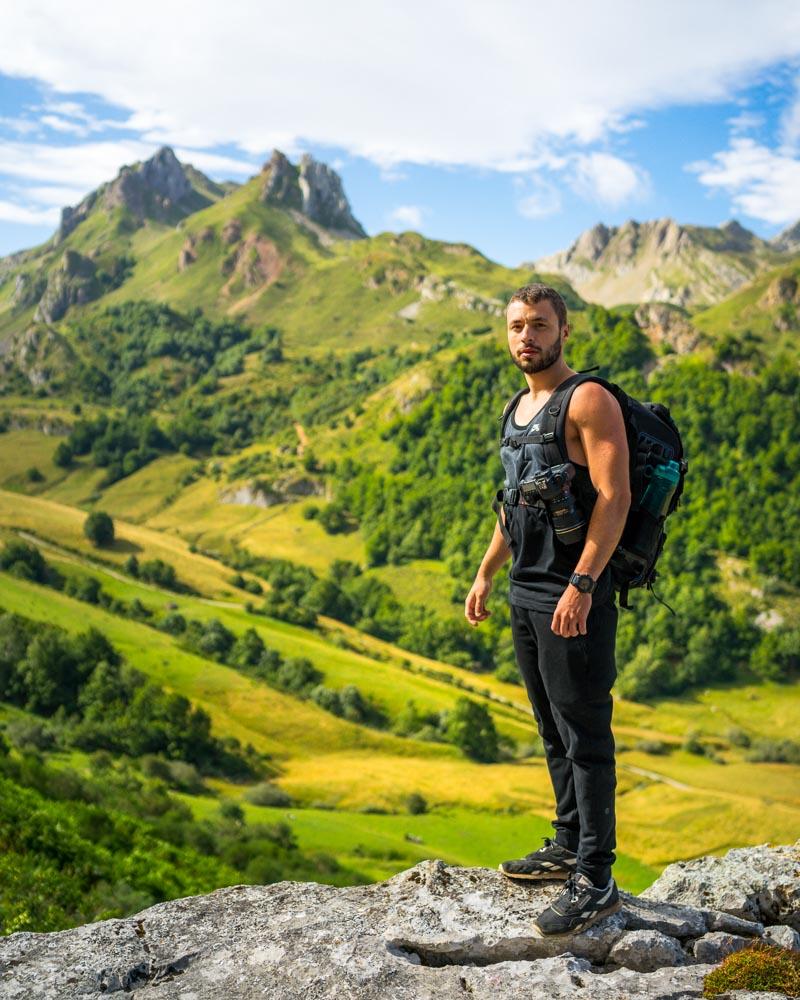
All strapped up & ready to hike!
Hike Difficulty Scale
If you’re in a hurry, here’s the scale used for rating hikes. It’s a 5-level scale, and ranges from easy to extreme.
- Easy: flat, easy trail
- Moderate: elevation, easy trail
- Challenging: lot of elevation or tricky parts
- Hard: lot of elevation and tricky parts
- Extreme: lot of elevation and lot of tricky parts
As you can see, the length of the hike (and duration) is not part of the scale.
Detailed Scale
Ok now let’s get a bit more into the details of each difficulty level.
This first difficulty level is for the easiest hikes you’ll find.
It’s typically hikes with little to no elevation, and the trail is a well-maintained path that anyone can walk on. Picture a concrete route, a nice trail in grass or hard ground.
These hikes are family-friendly, and you can bring your kids with you even if they have little experience hiking (or no experience at all). Some easy hikes are also made for strollers, but check more details about the hike just to be sure.
As length/duration is not part of the scale, easy hikes can range from 30 minutes to several hours. However an easy hike that needs more than 6 hours to complete will be moved to the next difficulty level, even if there is no elevation and it’s a nice path.
The second difficulty level is “moderate”, and it’s the most usual rating for hikes.
This rating is given to hikes with significant elevation changes: you’ll need to hike uphill or downhill a fair bit.
Moderate hikes still have an easy trail to walk on, well-maintained just like the “easy” hikes.
In the end, the main difference between an easy hike and a moderate hike is the elevation change. And obviously as mentioned above, if an easy hike takes more than 6h to complete, it’s going to be listed as moderate.
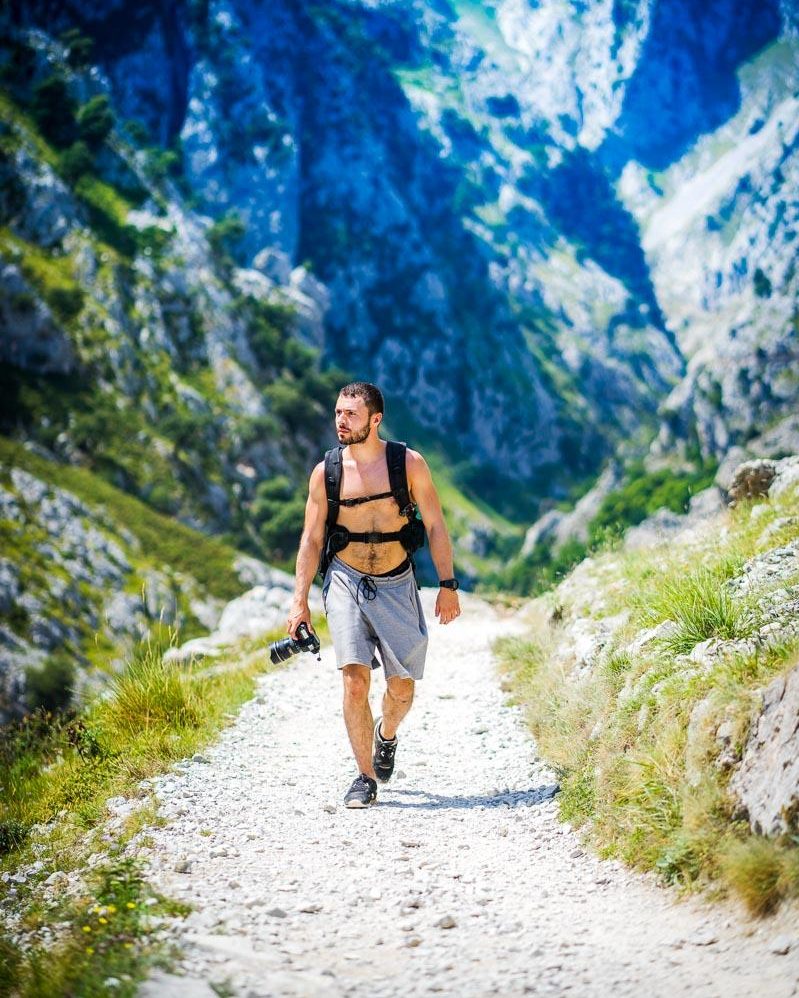
That’s an example of a well-maintained path I’m walking on there
The middle of the scale is “challenging”. This difficulty rating is for hikes that are not particularly hard, but have an element of difficulty that needs to be considered.
There are 2 possible things that will move a hike from “moderate” to “challenging”:
- BIG elevation changes: over 600m (2,000 feet) of total elevation change
- Tricky parts: any portion of the hike where it’s slippery, easy to fall, on the edge, or involves climbing
If a hike has 1 of these 2 elements, it will be listed as “challenging”.

No, animals blocking the path is not a tricky part
While challenging hikes had either big elevation changes OR tricky parts, a hard hike has both.
If you see a hike listed as “hard”, you’re in for a lot of uphill/downhill elevation changes, and you’ll need to be prepared for one or two tricky parts along the hike.
And finally, the highest level of difficulty: extreme.
As you can expect, an extreme hike combines all the difficulties elements. Just like a “hard” hike, it has a lot of elevation changes, and tricky parts. The main difference though, is that there is plenty of tricky parts.
While you’ll need to navigate one or two tricky parts on a “hard” hike, you’ll have plenty of them on “extreme” hikes. There will be a great amount of parts where you need to be extra careful, and where you’ll definitely need experience to go through.
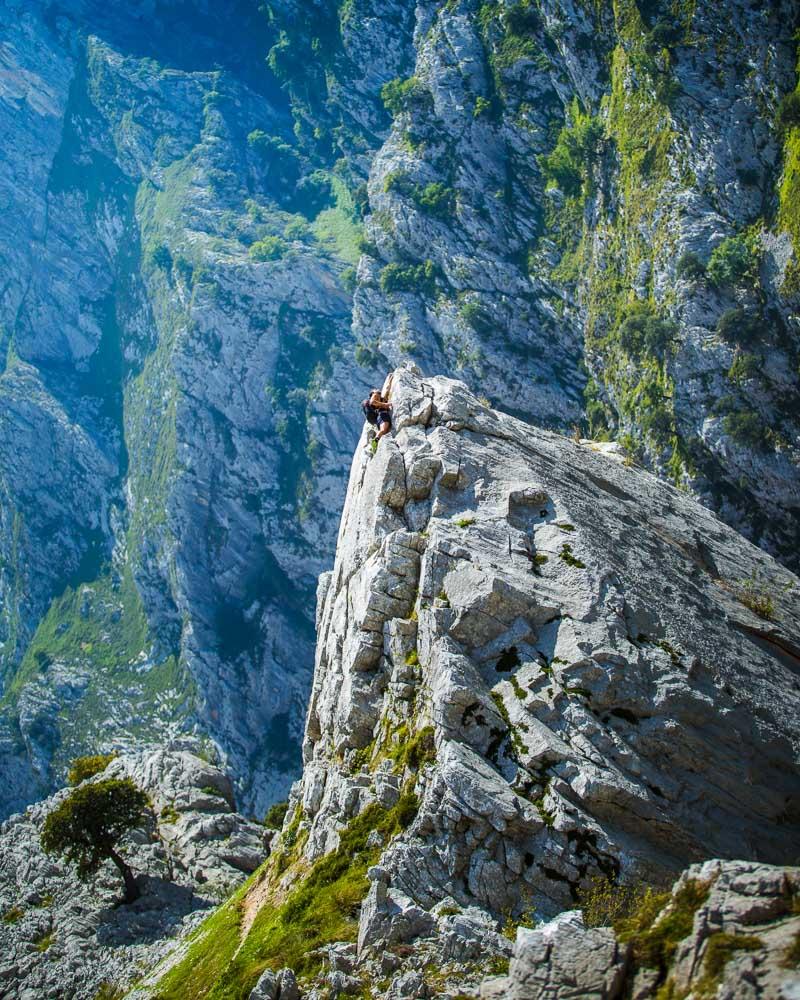
Yes, that’s definitely extreme
Examples of hikes for each difficulty level
You’ll find below an example of a hike for each of the 5 difficulty levels, so that you have a real-world example.
Easy hike
Cabo Vidio Scenic Loop
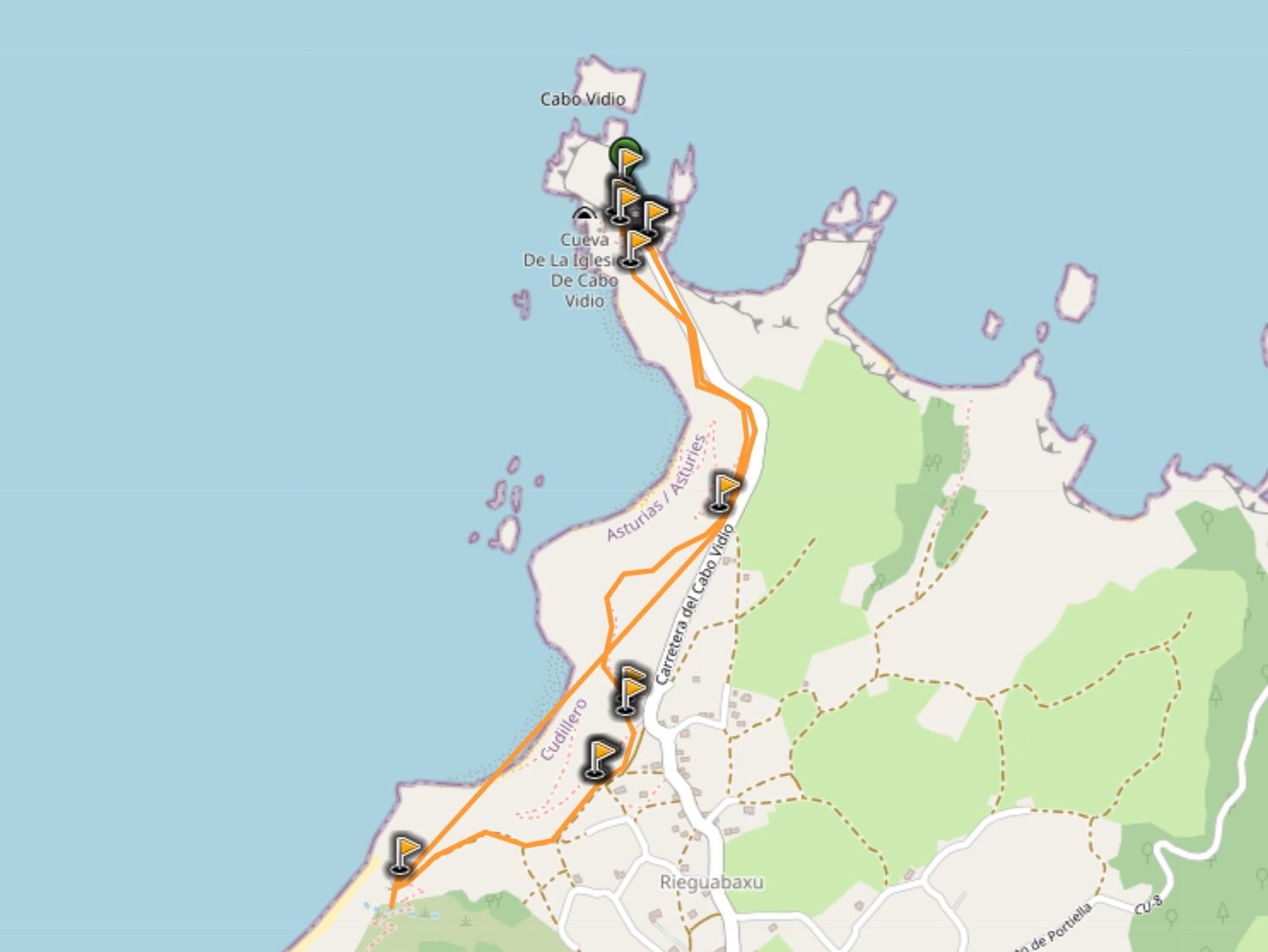
Moderate hike
Ruta de Lagos de Saliencia
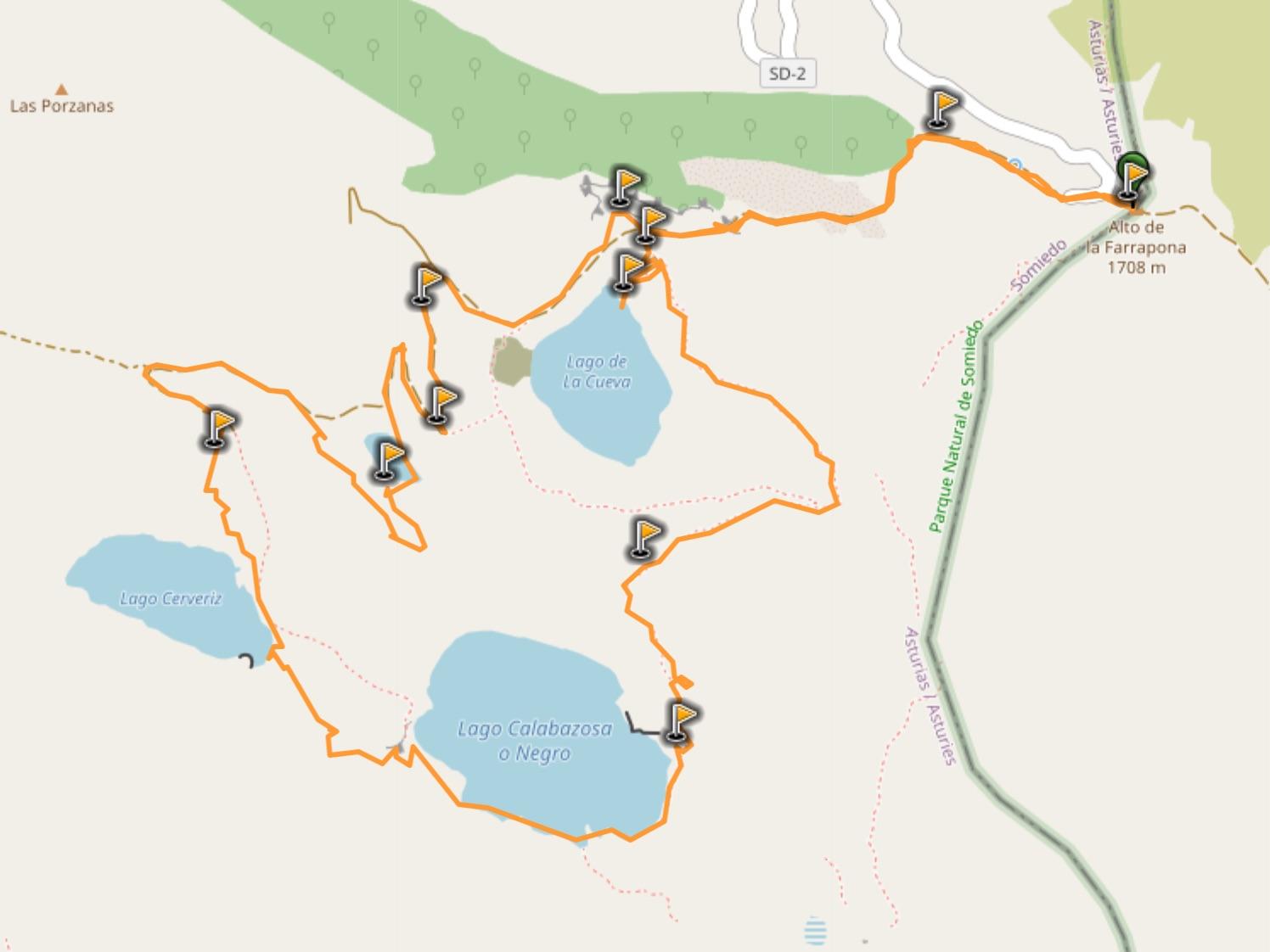
Challenging hike
Coming soon
Hard hike
Currently no hard hikes on the site.
Extreme hike
Currently no extreme hikes on the site.